

Regular commenting below articles has always been a frequently-used engagement feature on DER SPIEGEL. In fact, Product Manager Laura Badura shared that at the peak 1.7M comments were left in a month… too much for AI and human moderation to manage and too much for users to read .
Not only this, but conversations on a single topic were happening in multiple places across the site, diluting the potential value of this feature. Debates on the US elections for instance took place in the comments section of several articles covering the topic a day.
So, when the time came to review the feature and evaluate tools used, Laura and the DER SPIEGEL product team decided to run some user research to understand the popularity of comment sections, why users turned to DER SPIEGEL for debating instead of X or Reddit, and find ways of improving the feature.
A lot of research later…
Quantitative analysis meant asking questions such as “How much do you use the space?” and “Do you prefer active or passive participation?”, revealing that only 5% of users are commenting on a regular basis.
This is supported by industry research in Germany by Reuters Institute. The graph below shows active participation in news reporting since 2013, with the yellow results representing commenting.
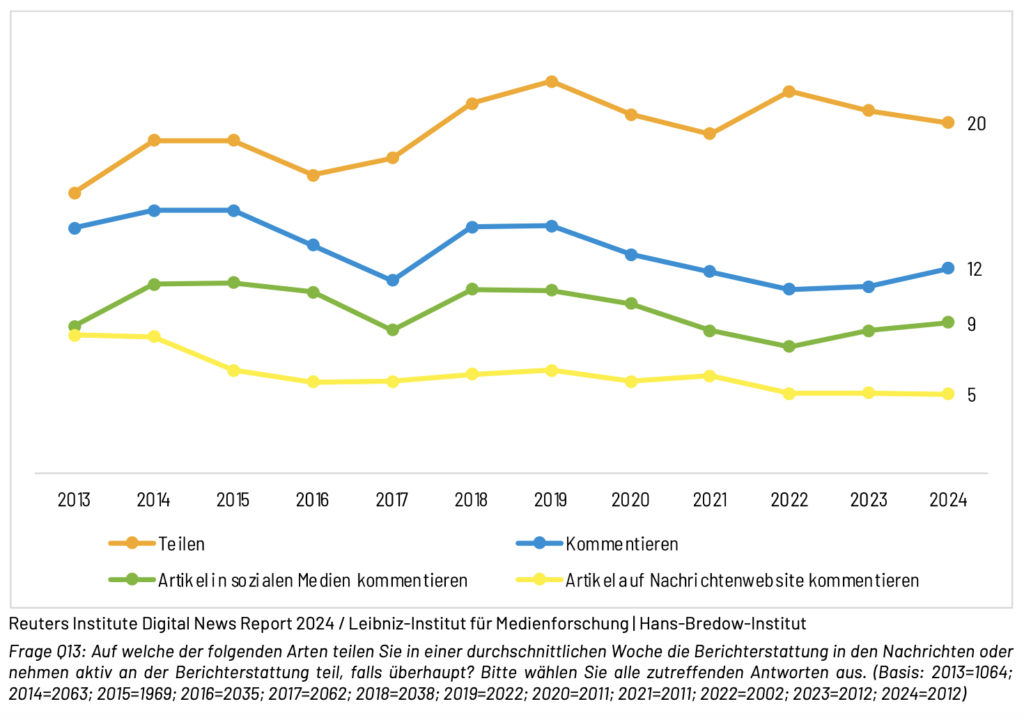
Qualitative research found that users associate trust and safety with these conversations when they happen under the DER SPIEGEL branding. There’s a mutual appreciation for the publisher’s work, and a reputation that users appreciate. Moderation means that users know that not every comment gets through to be published, and that journalists can vaguely guide discussions if needed. Overall, interaction options are highly appreciated by users as they have a clear desire to engage and know others’ opinions.
For those users who haven’t yet participated, the term ‘safe space’ kept coming up, particularly amongst women. Some mentioned interest in using the feature but a worry of publishing under their real name as well as deliberate choices over which topics they want to participate in.
Re-building the feature with this research in mind
To build trust with users and ensure they feel confident that they’re in a safe space, clear branding and custom design allows the debates to fit perfectly into DER SPEIGEL’s site.
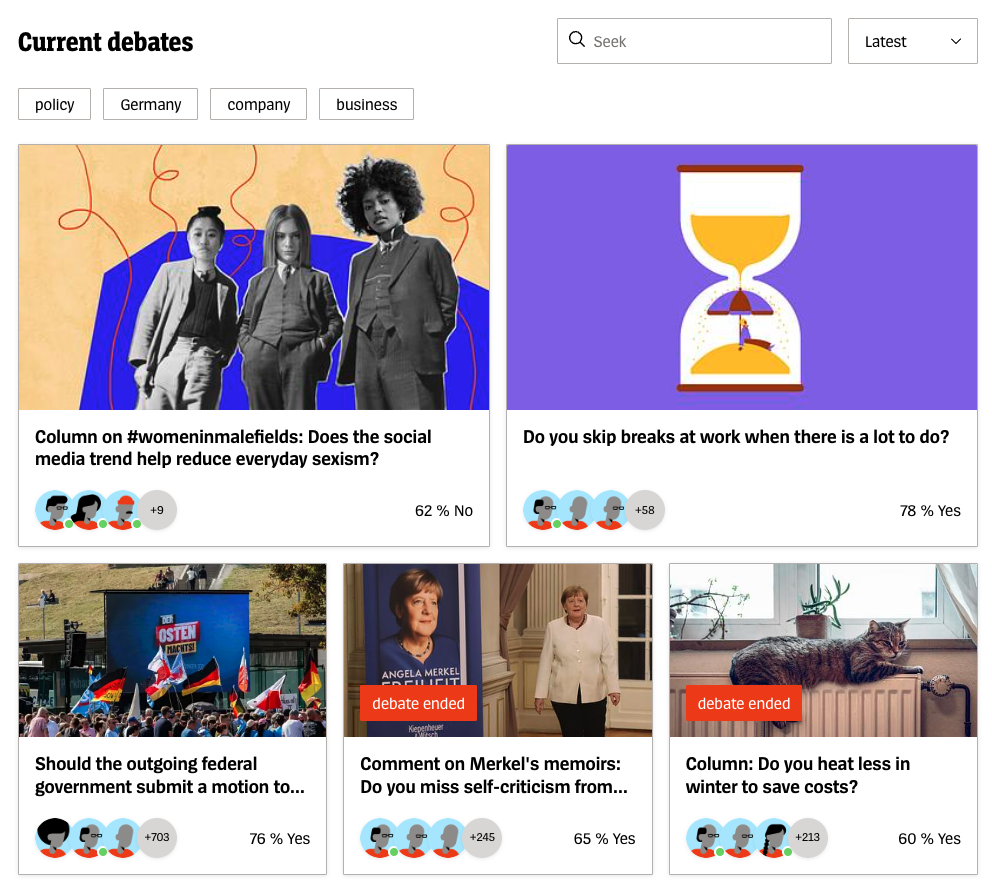
Their tool for implementing debates into the site, Logora, allowed for plenty of features, but it was important for DER SPIEGEL to evaluate which would be the most relevant to their audience.
For instance, one of Logora’s features is a form of rewards system for high commenters that sends a congratulatory message after a certain number of comments. But the team decided not to implement this at the launch to give readers the chance to test and interact with the debates un-interrupted. However, today, one year on from launching, and they’re considering ways of rewarding high engagement such as this.
The team also decided to omit ‘dislikes’ on comments to support the creation of a safe space.

Interestingly, they’ve also decided against making it obligatory for commenters to use their real name to allow users to feel safe. However, they have an account verification process, even for free members, and are continuously evaluating this decision.
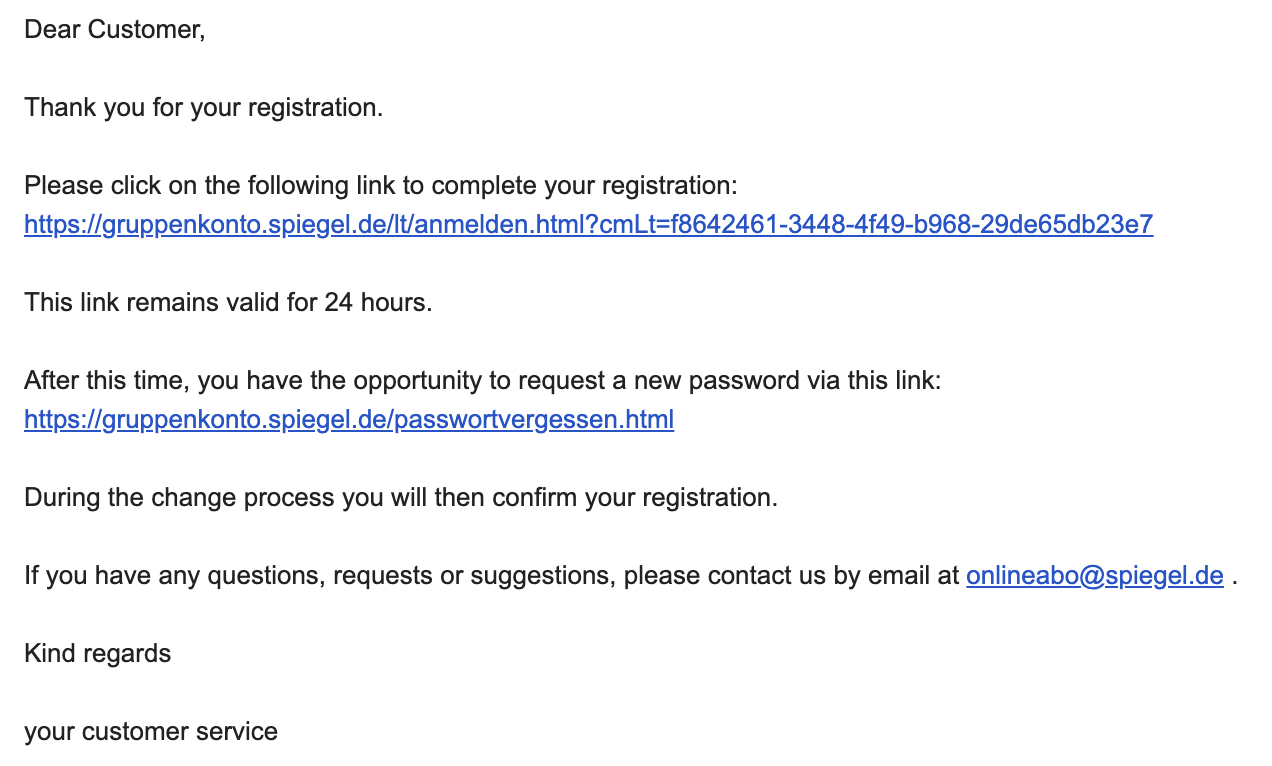
Real name commenting at The Times
At The Audiencers’ Festival London, The Times & Sunday Times shared how they did the opposite, aiming to reduce toxicity by reducing anonymity in their comments section. The idea: “people should know who they’re speaking to if you want a high quality conversation.”
At the time, only 37% of commenters were using their real name, today they’re at an impressive 98%.
“It was a long process involving many different departments at The Times, and lots of communication around it. Subscribers were told early on that they needed to use their real name, and there was a 3-step process to do this. But since making the change we’ve seen toxicity come down – it’s a safer, more welcoming community, and attacks on writers were down 25% – and an increase in the number of comments. People who don’t use a real name stick out for a bad reason – they’re now blocked and then become compliant.“
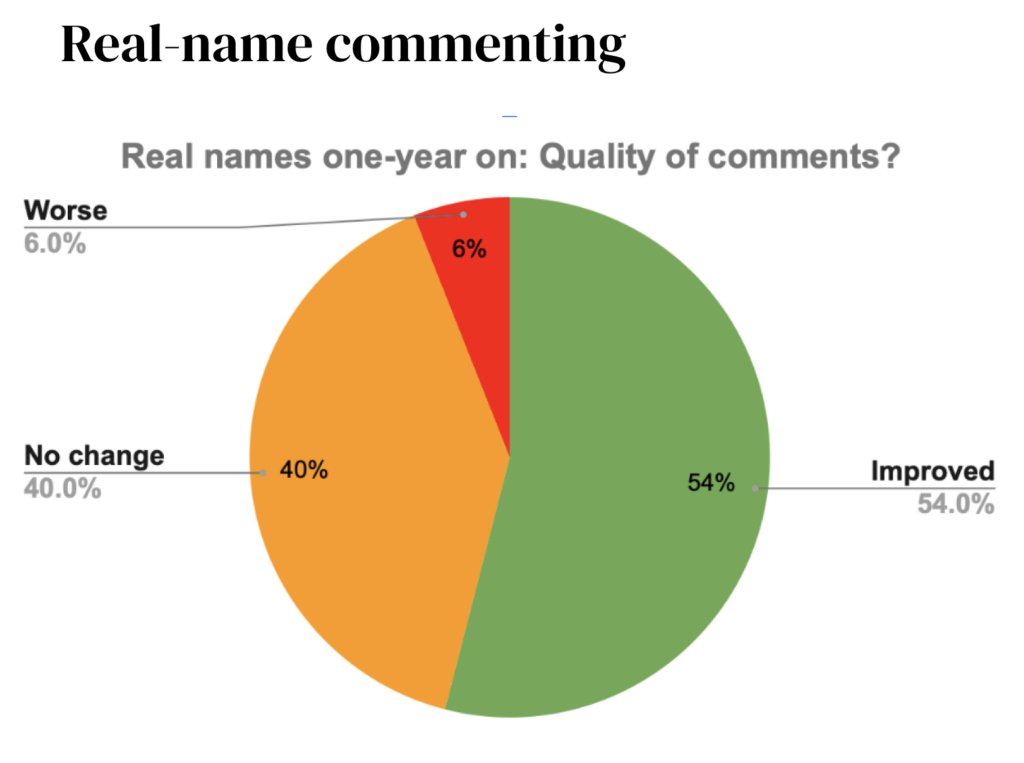
Debating in practice
For SPIEGEL Debatte, you only need to create a free account or log in to read the debates.
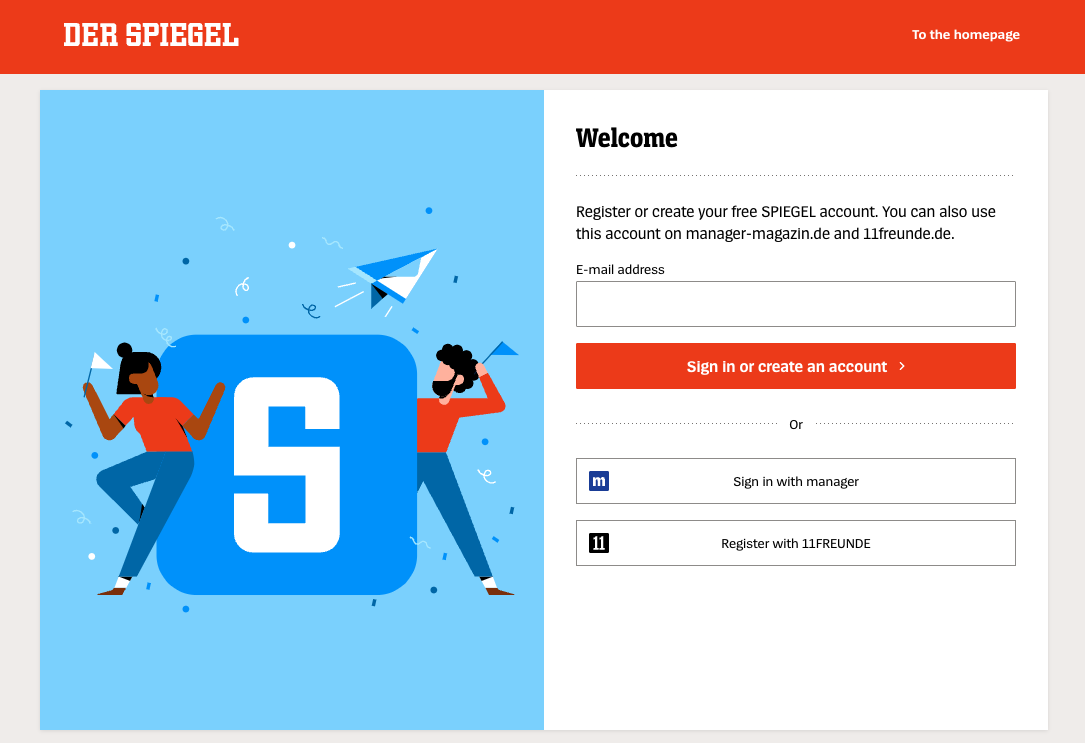
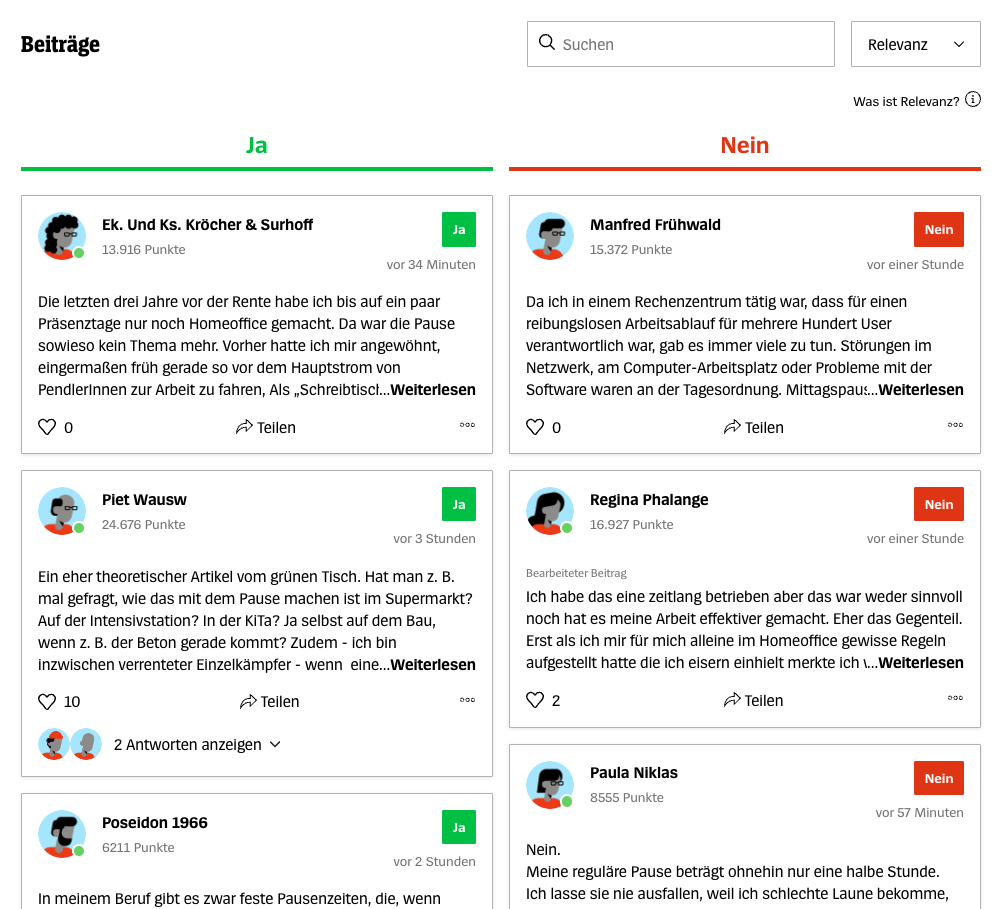
But in order to actually comment, react, see the distribution of votes (before the debate has ended) or suggest a debate topic, you need a paid subscription.
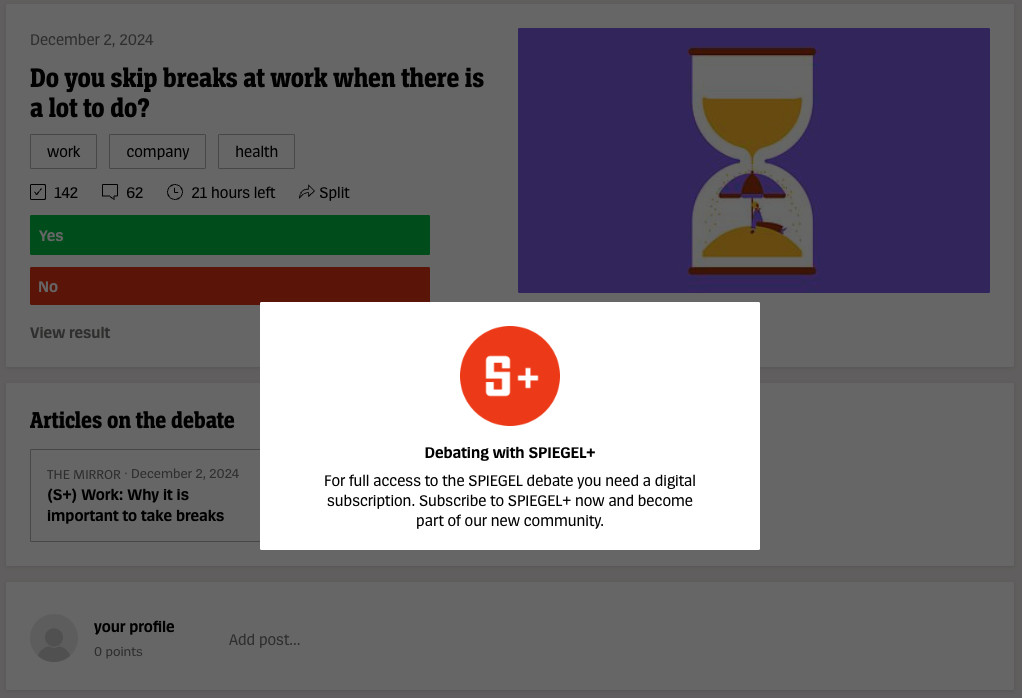

The feature is promoted in subscriber onboarding to increase regular usage amongst subscribers.
And debates are integrated into editorial content and vice versa to encourage recirculation. Notice the high visibility of premium (S+) content here to promote the value of subscription.

This premium article below is accompanied by a debate topic open to all, allowing free members to engage in the debate to an extent without being able to benefit from the full experience and accompanying content – a great balance between engagement and frustration to encourage conversion.

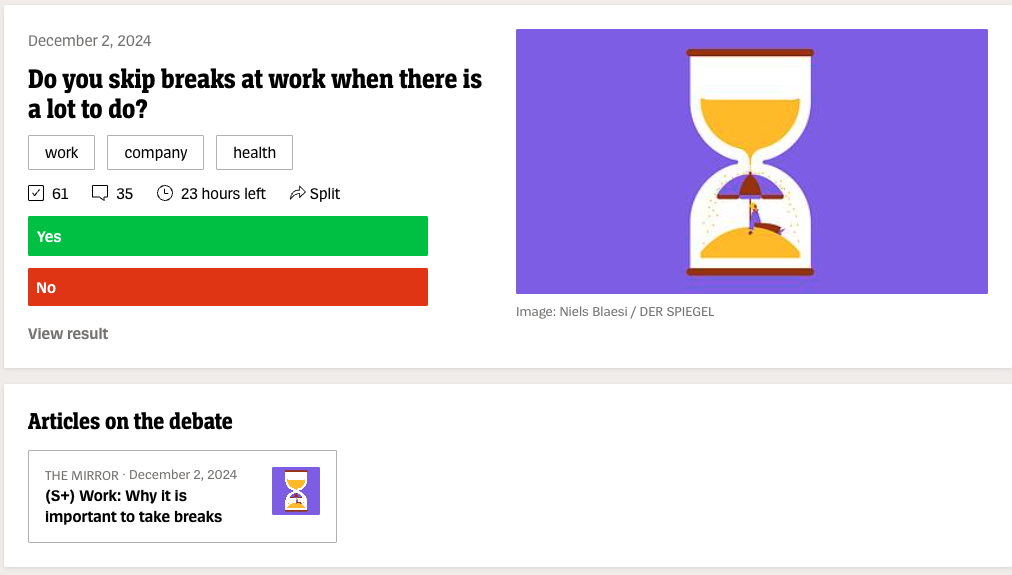
To reach new users and draw attention to the digital platform, they sometimes show comments from SPIEGEL Debatte in the print magazine and link to the Debate Space via a QR code. And finally, they also draw attention to the debate on social media channels such as LinkedIn or Instagram by publishing quotes or voting results, linking to the debate.
The goal wasn’t necessarily to increase conversions or retention, but commenting and interactive engagement has been an important feature of DER SPIEGEL’s site, so improving this feature was important, especially for subscribers who have full access to debating.
Some initial results
- Within the first 7 hours of launching, 10,000 users logged in within the debate space
- In the first year, the team created over 900 debates with more than 3M votes and about 400K comments.
- The quality of comments has increased with feature changes. “That is a qualitative observation for now. But it is also reflected in the rate of accepted comments, which has risen from 80-85 to 85-90 percent.”
Thank you Laura for taking the time for this interview!












